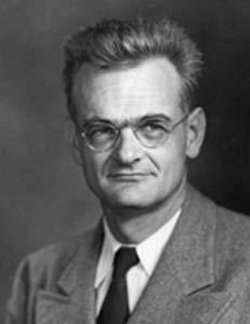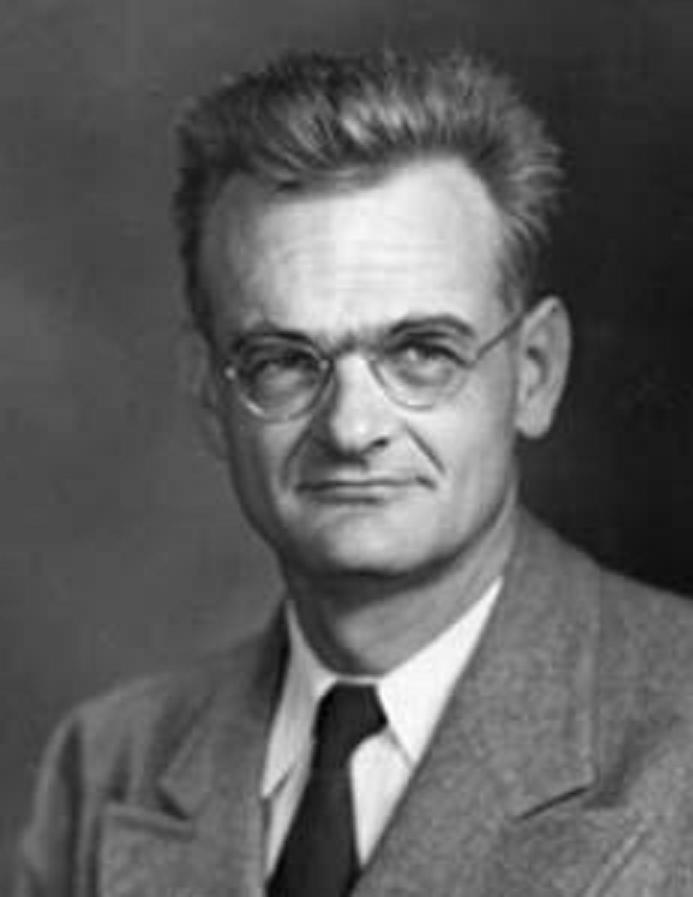Clarence M. Zener, a world-renowned physicist, died of heart failure Friday at his home in Squirrel Hill.
Mr. Zener, 87, was a professor in the physics department at Carnegie Mellon University whose work expanding the theoretical study of solid-state physics often was years ahead of its technological applications.
The Zener diode, a voltage regulator developed in the 1950s and used in modern computer circuitry, resulted from a paper explaining the breakdown of electrical insulators that Mr. Zener published in 1934.
"He was very well known for early work he did on the properties of solid materials ... some of which led to the Zener diode," said John Fetkovich, the associate head of the physics department and assistant to the president of the university.
"The most remarkable thing about him is how he could be given a problem he hadn't faced before and, with speed and accuracy that is very rare, come to understand it ... and see the way to deal with it," Fetkovich said.
"Even in recent months, at that age (87), he was as sharp as most scientists that I know and he continued to be intellectually curious and active ... Just being with him and seeing how he worked actually helped me," Fetkovich said.
Herbert A. Simon, who won the Nobel Prize in economics in 1978, said Mr. Zener was "a very pleasant and congenial person ... he was very well liked."
"He certainly was one of the outstanding scientists on our faculty," said Simon, a former dean of the Carnegie Mellon Graduate School of Industrial Administration.
Mr. Zener was credited with helping to develop geometric programming, a standard technique useful in mathematical studies as well as practical engineering and business administrative problems.
He was internationally recognized for introducing a field of scientific study with his work on internal friction, the process by which the energy in a vibrating metal is converted to heat as the vibration subsides. He also pioneered the concept of ocean thermal energy conversion, a form of solar energy using the temperature gradient in the ocean while avoiding environmental problems found in other methods.
Hubert Aaronson, R.F. Mehl professor of metallurgical engineering and materials science, called Mr. Zener "a rare, strange genius" in the winter 1985 edition of Carnegie Mellon Magazine.
The Material Research Society in 1982 called him one of the "most fundamental and original of any 20th century scientists."
Before joining the Carnegie Mellon faculty in 1968, Mr. Zener had been dean of science for three years at Texas A&M University. He joined Texas A&M after retiring from Westinghouse Electric Corp. Research Laboratories, where during his 14 years he was director of research and director of science.
Mr. Zener was a physics instructor at Washington University in St. Louis in 1935-37 and at the City College of New York in 1937-40. He was an associate professor at Washington State University from 1940-42, then a principal physicist at the Watertown (Mass.) Arsenal during World War II. After the war, he taught at the University of Chicago until 1951.
He was the author of more than 125 papers and books and a member of the National Academy of Science.
His honors included the Von Hippel Award of the Materials Research Society, the Bingham Award of the Society of Rheology, the Wetherill Medal of the Franklin Institute and the Albert Souveur Achievement Award and the Gold Medal of the American Society for Metals.
A native of Indianapolis, Mr. Zener graduated in 1926 from Stanford University and received his doctorate in physics in 1929 from Harvard University. He also studied at the University of Leipzig.
Survivors include his wife, Ruby Zener; two daughters, Jean Lepley of Seattle, and Ann Edwards of Pittsburgh; two sons, Robert of McLean, Va., and Thomas of Irvine, Calif.; and 11 grandchildren.
There will be no visitation. A memorial service will be held at 3 p.m. Saturday in the First Unitarian Church of Pittsburgh, Ellsworth and Morewood avenues, Shadyside. Arrangements are by H. Samson, Oakland.
Clarence M. Zener, a world-renowned physicist, died of heart failure Friday at his home in Squirrel Hill.
Mr. Zener, 87, was a professor in the physics department at Carnegie Mellon University whose work expanding the theoretical study of solid-state physics often was years ahead of its technological applications.
The Zener diode, a voltage regulator developed in the 1950s and used in modern computer circuitry, resulted from a paper explaining the breakdown of electrical insulators that Mr. Zener published in 1934.
"He was very well known for early work he did on the properties of solid materials ... some of which led to the Zener diode," said John Fetkovich, the associate head of the physics department and assistant to the president of the university.
"The most remarkable thing about him is how he could be given a problem he hadn't faced before and, with speed and accuracy that is very rare, come to understand it ... and see the way to deal with it," Fetkovich said.
"Even in recent months, at that age (87), he was as sharp as most scientists that I know and he continued to be intellectually curious and active ... Just being with him and seeing how he worked actually helped me," Fetkovich said.
Herbert A. Simon, who won the Nobel Prize in economics in 1978, said Mr. Zener was "a very pleasant and congenial person ... he was very well liked."
"He certainly was one of the outstanding scientists on our faculty," said Simon, a former dean of the Carnegie Mellon Graduate School of Industrial Administration.
Mr. Zener was credited with helping to develop geometric programming, a standard technique useful in mathematical studies as well as practical engineering and business administrative problems.
He was internationally recognized for introducing a field of scientific study with his work on internal friction, the process by which the energy in a vibrating metal is converted to heat as the vibration subsides. He also pioneered the concept of ocean thermal energy conversion, a form of solar energy using the temperature gradient in the ocean while avoiding environmental problems found in other methods.
Hubert Aaronson, R.F. Mehl professor of metallurgical engineering and materials science, called Mr. Zener "a rare, strange genius" in the winter 1985 edition of Carnegie Mellon Magazine.
The Material Research Society in 1982 called him one of the "most fundamental and original of any 20th century scientists."
Before joining the Carnegie Mellon faculty in 1968, Mr. Zener had been dean of science for three years at Texas A&M University. He joined Texas A&M after retiring from Westinghouse Electric Corp. Research Laboratories, where during his 14 years he was director of research and director of science.
Mr. Zener was a physics instructor at Washington University in St. Louis in 1935-37 and at the City College of New York in 1937-40. He was an associate professor at Washington State University from 1940-42, then a principal physicist at the Watertown (Mass.) Arsenal during World War II. After the war, he taught at the University of Chicago until 1951.
He was the author of more than 125 papers and books and a member of the National Academy of Science.
His honors included the Von Hippel Award of the Materials Research Society, the Bingham Award of the Society of Rheology, the Wetherill Medal of the Franklin Institute and the Albert Souveur Achievement Award and the Gold Medal of the American Society for Metals.
A native of Indianapolis, Mr. Zener graduated in 1926 from Stanford University and received his doctorate in physics in 1929 from Harvard University. He also studied at the University of Leipzig.
Survivors include his wife, Ruby Zener; two daughters, Jean Lepley of Seattle, and Ann Edwards of Pittsburgh; two sons, Robert of McLean, Va., and Thomas of Irvine, Calif.; and 11 grandchildren.
There will be no visitation. A memorial service will be held at 3 p.m. Saturday in the First Unitarian Church of Pittsburgh, Ellsworth and Morewood avenues, Shadyside. Arrangements are by H. Samson, Oakland.
Sponsored by Ancestry
Advertisement
Advertisement






